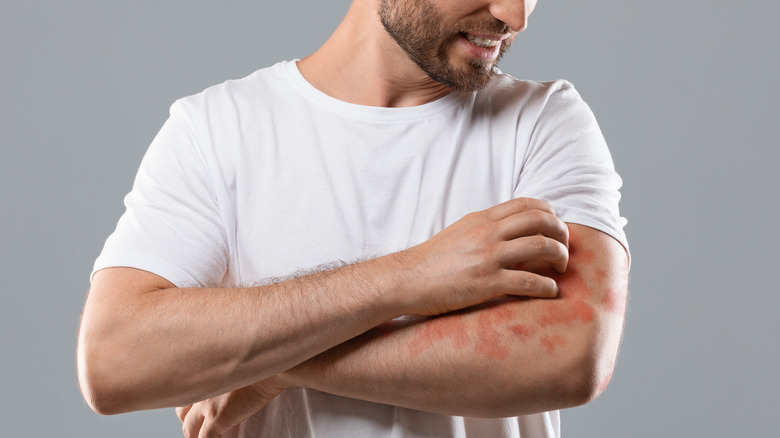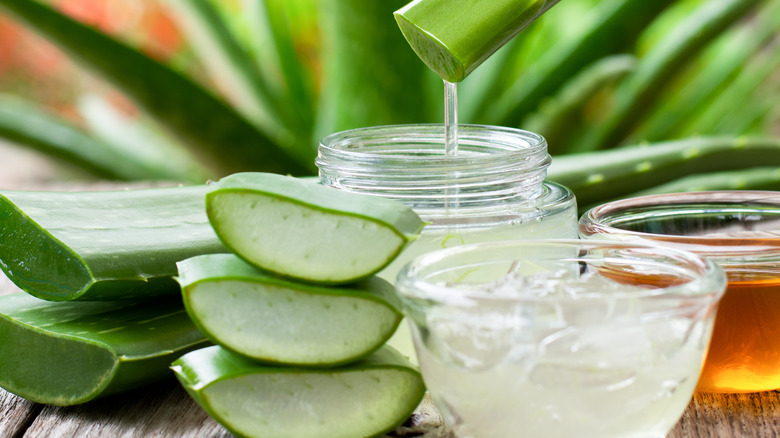Home Remedies For Itchy Eczema
Eczema, also known as atopic dermatitis, is a disease that causes serious inflammation, dry skin, and itching on the skin surface (via Mayo Clinic). This painful chronic skin condition mostly affects young children but may also occur in adults. Per the numbers by The National Eczema Association (NEA), about 31.6 million Americans have some type of eczema. The skin condition may be caused by many reasons, according to the Cleveland Clinic. Being allergic to certain environmental triggers, such as dust, may make someone prone to breakout. In addition, genes play an integral role because eczema can be hereditary, affecting people with hay fever or asthma history.
Stress could also be a leading factor in eczema, particularly if you have anxiety or depression, mood swings, low self-esteem, or overwhelming feelings. Keep in mind, symptoms in adults and infants could vary slightly, according to WebMD. As an adult, the skin may develop a rash that will dry up and appear cracked on the face, back of the knees, or hands. In infants, however, irritation is seen mainly on the head, legs, or abdomen.
Simple hacks for relieving itchy eczema at home
Luckily, there are several things you can try at home to alleviate eczema symptoms. According to Mayo Clinic, you can immediately relieve the itchiness by taking an anti-allergic medication that has antihistamines. Some stronger medications with diphenhydramine are more suitable for those with severe eczema. Although it's always best to consult with a professional before taking medicines. Keep in mind, not to scratch the skin repeatedly and trim the nails to avoid deepening the wounds.
Applying aloe vera gel to the affected part will soothe the skin irritation (per Medical News Today). It has remarkable antibacterial and antimicrobial properties that can reduce the chance of infections. Similarly, experts also recommend using a little bit of apple cider vinegar. Although no research has been done to verify that it helps ease symptoms, the liquid balances the skin's acidity levels to help fight off bacteria, reducing the risk of infections. According to Cleveland Clinic, another option you can resort to is Vaseline. It has no side effects and moisturizes the skin well.


